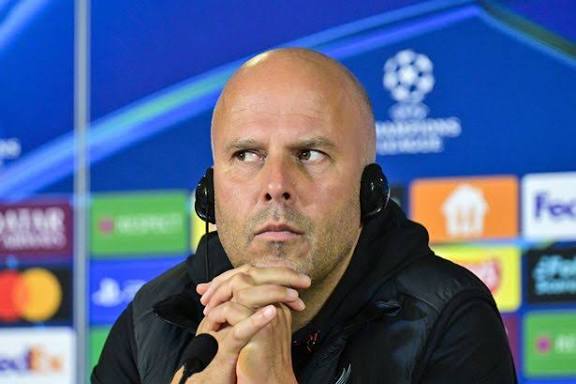Three straight defeats. For the first time in his Liverpool managerial career, Arne Slot finds himself under real pressure — and the timing couldn’t be worse. The international break has arrived not as a reward, but as a reality check. When the Reds return, it’s Manchester United at Anfield on Super Sunday.
It’s a test of pride, patience, and philosophy for Slot — a coach whose early months promised energy, fluidity, and control, but who now faces the same question every Liverpool manager eventually must answer: Can he steady the storm?
Cracks in the champion’s armor
Let’s be fair — these defeats weren’t disasters on paper. Liverpool lost narrowly, all away from home, and all to elite opponents: Crystal Palace (2.92 xG vs Liverpool’s 2.14), Galatasaray (1.72 vs 1.8), and Chelsea, a stadium that has long been a graveyard for visiting Reds. Two of those losses came deep in stoppage time. But the Premier League is ruthless — nobody cares about xG when the table starts to slip.
And now, the concern isn’t just the results — it’s the patterns.
For much of last season’s title-winning campaign, Liverpool won tight games with late goals and unshakable belief. Slot, ever the tactician, saw something deeper beneath that success. Opponents weren’t coming to Anfield to attack anymore — they were waiting, pouncing on mistakes, and exploiting space on the break.
Those warning signs have now become flashing lights.
“We’ve seen a shift,” Slot admitted. “Teams used to come at us. Now, they sit deep, wait for errors, and counter. We have to find the answers to that.”
Enter: Florian Wirtz, Liverpool’s £116.5m spark plug
Liverpool’s drop in attacking rhythm — combined with an increasingly shaky defense — led to the blockbuster summer signing of Florian Wirtz, Germany’s brightest young star. The Reds spent a then British-record £116.5 million on the 21-year-old creative magician, hoping his flair and precision could reignite the fire.
Slot didn’t just want a new name — he wanted a new dimension. A player who could unlock deep defenses, thrive in tight spaces, and carry the creative weight once shouldered by Trent Alexander-Arnold from the back.
But even the most gifted playmakers need structure behind them — and right now, Liverpool’s once-feared defensive backbone looks uncertain.
The full-back dilemma: post-Trent and post-Robbo
For the first time since December 2017, Liverpool’s full-back positions are no longer automatic. Trent Alexander-Arnold is gone — off to Real Madrid on a free transfer — and Andy Robertson is no longer a guaranteed starter after a turbulent 2024.
Those two defined an era. Trent, with his Beckham-like delivery and creative genius, became the gold standard of modern full-backs — 64 Premier League assists and countless memories of pinpoint crosses and thunderous long balls. Robertson, the engine on the left, added 60 assists of his own since arriving from Hull City for just £10 million. Together, they were chaos and control personified.
Now? Liverpool are searching for that same spark.
Slot has turned to Milos Kerkez, the 20-year-old dynamo from Bournemouth, but the adaptation has been rough. Like Robertson in his first season under Klopp, Kerkez is learning the hard way that being a Liverpool full-back isn’t about talent — it’s about timing, intensity, and trust.
On the right, injuries and inconsistency have created a revolving door. Jeremie Frimpong started the campaign, but after a knock, Conor Bradley, Joe Gomez, and even Wataru Endo have rotated through. In a surprising twist, Slot has occasionally deployed Dominik Szoboszlai — a midfielder — at right-back, a move that screams both tactical creativity and desperation.
For a club built on width and rhythm, that uncertainty has fractured the flow.
Salah’s silent struggle
Then there’s Mohamed Salah. The Egyptian King remains Liverpool’s icon, but his crown is starting to tilt. On paper, his numbers look fine — 3 goals and 3 assists in 10 games — but dig deeper and the concern grows. Across his last 24 appearances in all competitions, Salah has scored just four non-penalty goals.
That’s not the same ruthless, relentless Salah we’ve come to know. At 33, he’s adjusting — maybe even reinventing — his game. The burst is a little shorter, the sharpness slightly dulled. But Salah’s greatness has never just been about pace or power; it’s about pride. And pride is exactly what Liverpool need right now.
Finding answers before Anfield erupts
Slot has spent the international break searching for solutions. Liverpool’s identity under him was supposed to be evolution — high pressing, fluid positioning, tactical freedom. But the past three matches have exposed a team in transition, caught between two philosophies: Klopp’s chaos and Slot’s control.
The Dutchman knows how quickly pressure can build at Anfield. Lose to Manchester United on Sunday, and the mood changes completely. Win — and suddenly, Liverpool’s wobble becomes a wake-up call.
He’s already shown he can adapt. His understanding of opponents’ tactical shifts — teams going long, bypassing the press, refusing to play through the middle — is sharp. But as he said himself: “We have to find answers to that.”
Now the challenge is to prove it.
The moment of truth
Liverpool vs. Manchester United is never just a game. It’s a statement, a story, a shot at redemption. Slot’s men know it. Anfield knows it.
After three straight defeats, every pass, every tackle, every roar from the Kop will matter more than ever. Because for Arne Slot, this isn’t just about bouncing back — it’s about defining who Liverpool are under his watch.
If he gets it right, Sunday could be the start of something special again.
If not, the storm clouds over Merseyside will only grow darker.






















